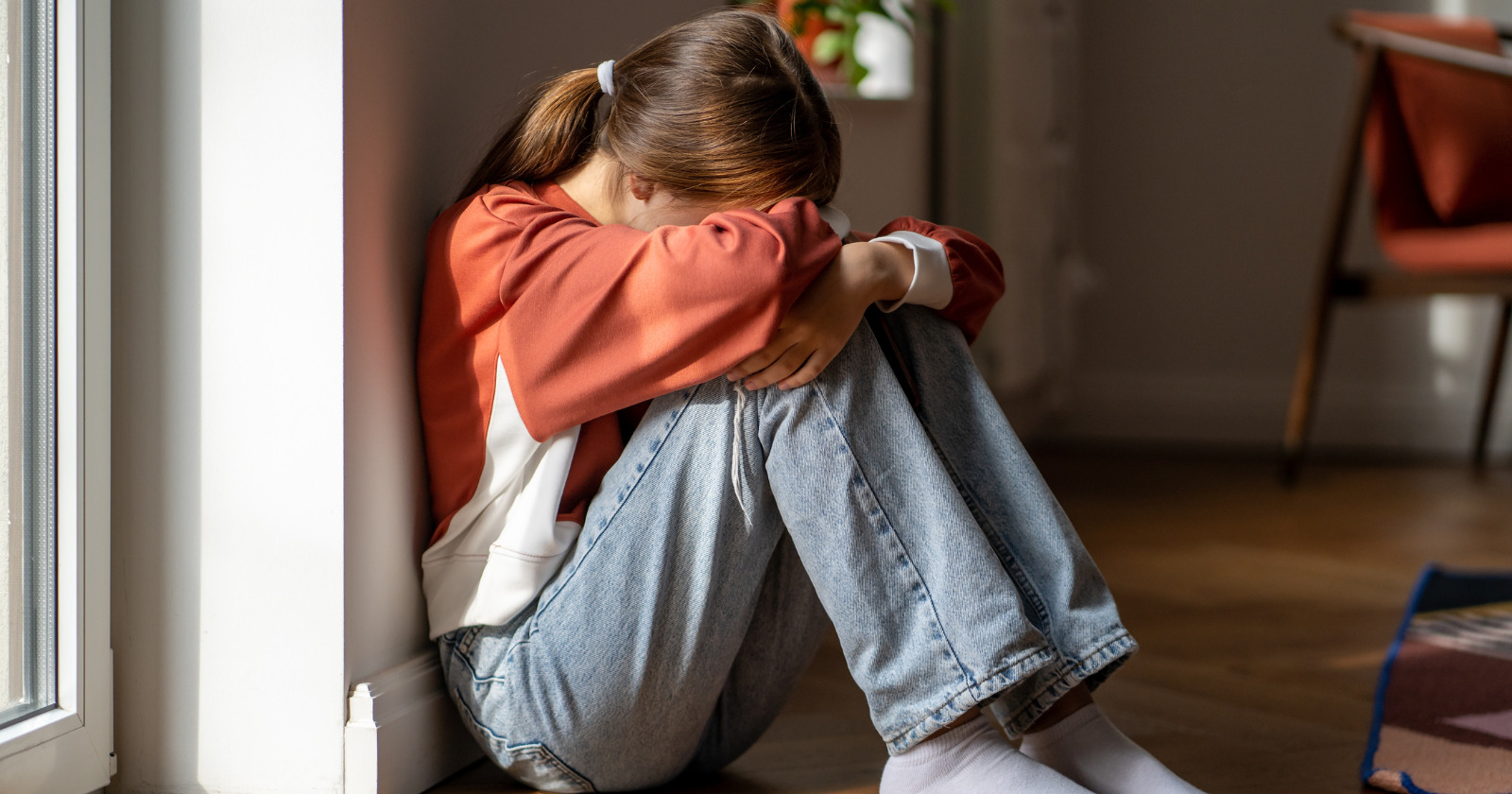The bond between parents and children is meant to be unshakable, a source of love and comfort that lasts a lifetime.
Yet, for some, growing older brings not closeness but distance. This space, whether emotional or physical, carries a quiet pain and unspoken stories.
For many, this distancing isn’t fueled by rebellion or anger—it’s shaped by early experiences that defined their sense of trust, safety, and belonging. Childhood moments, whether nurturing or hurtful, lay the groundwork for how we connect—or disconnect—with those who raised us.
The stories behind this distance reveal deeper truths, offering insight into how childhood shapes the relationships we carry into adulthood.
1) Lack of emotional validation
In our formative years, emotional validation plays an essential role in shaping our self-image and self-worth. When parents validate their children’s feelings, they’re saying, “I see you. I hear you. Your emotions are important.”
But what happens when this validation is absent?
Children who grow up without emotional validation feel unseen and unheard. Their emotions are dismissed or ignored, leaving them feeling isolated and misunderstood. This dismissal can make it hard for them to trust their own feelings and experiences.
As these children grow older, they may distance themselves from their parents as a way of protecting their emotional well-being. The lack of validation in their childhood can lead to strained parent-child relationships in adulthood.
This distancing isn’t about blaming the parents or holding onto past grudges. It’s about recognizing the impact of past experiences and taking steps towards personal growth and emotional resilience. After all, we can’t change our past experiences, but we can take control of how we respond to them now.
2) Inconsistent parenting
Consistency is key in any relationship, especially between parents and their children. A childhood marked by inconsistent parenting can create an emotionally unstable environment.
When a parent alternates between being warm and loving one day and cold and distant the next, it leaves the child feeling confused and uncertain about their place in the world. This emotional unpredictability can lead to anxiety and a lack of trust in relationships.
As these children grow into adults, the effects of inconsistent parenting linger, making it challenging to form secure attachments.
They may find themselves distancing from their parents, craving the stability and predictability that were missing during their formative years, as they seek healthier, more reliable connections.
3) Overwhelming expectations
Expectations can be a double-edged sword. On one hand, they fuel our ambitions and push us to strive for excellence. On the other, when they become overwhelming or unrealistic, they can stifle our individuality and create undue pressure.
Children raised with heavy parental expectations feel trapped in a life that isn’t their own. They might feel compelled to pursue careers, relationships, or lifestyles that don’t align with their true selves, simply to meet their parents’ standards.
Distancing from parents becomes a necessary step toward self-discovery and personal freedom. It’s about reclaiming one’s life and making choices driven by authentic desires and values, free from external pressures.
As Carl Jung wisely said, “The privilege of a lifetime is to become who you truly are.” This separation isn’t rooted in resentment, but in the journey of embracing one’s true self and finding peace in personal authenticity.
4) Emotional or physical abuse

This is a hard truth to confront, but it’s an unfortunate reality for many people. Emotional or physical abuse during childhood can cause deep emotional scars that persist well into adulthood.
Abusive behaviors from parents can take many forms, from overt physical violence to subtle forms of emotional manipulation. Regardless of the form it takes, the impact on a child can be profoundly damaging, leading to feelings of worthlessness, fear, and insecurity.
As adults, individuals who experienced abuse during childhood often find it necessary to distance themselves from their parents in order to heal and protect their emotional well-being. This process isn’t driven by anger or a desire for revenge. It’s focused on acknowledging the pain, validating their feelings, and taking steps toward healing.
Rumi noted, “The wound is the place where the Light enters you.” This powerful reminder speaks to the resilience within all of us—by confronting our past honestly and compassionately, we can transform our pain into strength, fostering both healing and personal growth.
5) Financial control
Money can be a complex and contentious issue within families, especially when it’s used as a tool for control. In some households, parents leverage their financial power to influence their children’s decisions and limit their autonomy.
- 5 zodiac signs who tend to have the most addictive personalites - Parent From Heart
- 7 signs you’ve been sacrificing your peace to keep the wrong people happy, according to psychology - The Blog Herald
- 8 evening habits of people who wake up feeling excited about life, according to psychology - Global English Editing
This control can manifest in various ways, such as withholding support for education or career choices, using money to create guilt or obligation, or even threatening disinheritance if their children don’t comply with their wishes.
For those who experienced this kind of control, taking ownership of their financial independence becomes an act of reclaiming their personal freedom. They start making financial decisions based on their own values, rather than being swayed by parental pressure.
While challenging ingrained beliefs about money, status, and power isn’t easy, it’s a journey worth undertaking. True prosperity comes from using money as a tool for positive change, not as a means of manipulation or control.
6) Parentification of the child
Parentification occurs when a child is pushed into the role of a parent, due to family struggles such as addiction, mental health issues, or financial stress.
In these situations, children are expected to take on adult responsibilities, such as caring for younger siblings, handling household chores, or even providing emotional support to their parents.
This premature assumption of adult duties can rob a child of their right to a carefree childhood and impose an emotional burden they’re not equipped to carry.
As they grow older, many of these children may choose to create distance from their parents in order to regain the childhood they were denied.
This emotional distance becomes a necessary step toward healing, as it helps them break free from the role they were thrust into and start reclaiming their own identity and life.
Maya Angelou famously remarked, “There is no greater agony than bearing an untold story inside you.” For many who experience parentification, reclaiming their own life means releasing the burdens they once carried and allowing themselves to heal and grow.
7) Unresolved conflicts
Unresolved conflicts from childhood can continue to affect our relationships with our parents long into adulthood. When disagreements or misunderstandings are left unaddressed, they can create lasting resentment and emotional distance.
These unresolved issues may cause us to feel unheard, invalidated, or disconnected from the very people who should provide support and care.
As adults, we may find ourselves stepping back from our parents to protect ourselves from further emotional strain, or to signal a need for change in the relationship.
This withdrawal might reflect an underlying desire for reconciliation, healing, or a healthier, more balanced connection.
Final thoughts
Healing from past wounds, especially those rooted in our relationships with our parents, is a deeply personal journey. It’s a hard decision to distance ourselves, but sometimes, it’s an act of self-preservation. This distance allows us to reclaim our sense of self, protect what still needs to heal, and honor our emotional well-being.
The process is not driven by anger or resentment but by the need for change and growth. It’s about confronting the past with courage, embracing vulnerability, and giving ourselves the opportunity to heal. By doing so, we break free from old, unhealthy patterns and open the door to more meaningful, balanced relationships.
True healing comes from giving ourselves the compassion and understanding we may not have received before. It’s about creating space for self-love, empowering ourselves, and building a future where we live authentically and free from past burdens.









